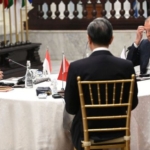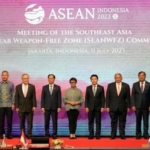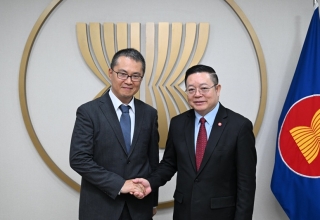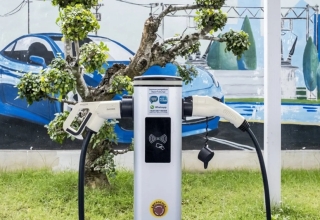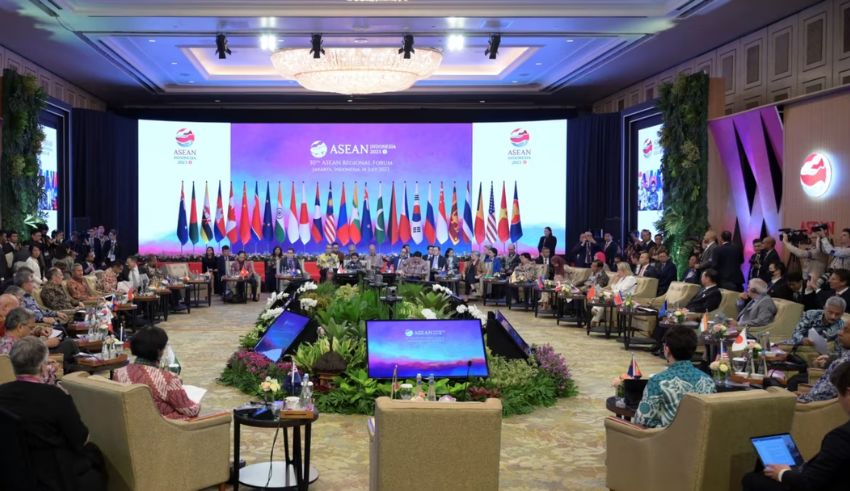
At their most recent conference, the foreign ministers of the Association of Southeast Asian Nations (ASEAN) strongly denounced the rising violence in Myanmar. The ASEAN’s cohesiveness is in jeopardy due to the crisis in Myanmar, which has been worse since a military coup in early 2021. The critical developments and remarks made by the ASEAN foreign ministers regarding the situation in Myanmar and their worries regarding the South China Sea dispute are examined in this article.
Since the military overthrew the government in early 2021, Myanmar, an ASEAN member, has seen a rise in violence. Pro-democracy activists have been subjected to a savage crackdown by the military due to their acts, which has sparked retaliatory attacks from a resistance movement and ethnic minority armies. The ASEAN’s top diplomats sharply denounced the escalating acts of violence in Myanmar in a joint statement that was delayed in its distribution. The devastation of public infrastructure, artillery bombardment, and airstrikes were expressly mentioned in the declaration as reasons for worry.
ASEAN’s Call for Action
The ASEAN foreign ministers called on all sides of the crisis to act swiftly to end the senseless killings. They emphasised the significance of condemning any escalation and fostering an environment suitable for providing humanitarian aid and open national dialogue. Malaysia specifically urged for harsher criticism of the military authorities in Myanmar, who have thus far refused to carry out a five-point peace plan by ASEAN soon after the coup.
The ongoing territorial conflicts in the South China Sea were another topic covered by the foreign ministers at the ASEAN gathering. China, a neighbour in the area that has grown in power, and other ASEAN countries have conflicting maritime claims. The ministers expressed worry about land reclamations, activities, and serious incidents that endanger everyone’s safety, even though China’s presence and actions were not explicitly acknowledged in the joint communique.
Internal Rifts and Engagement with Myanmar’s Junta
There are disagreements within ASEAN about cooperating with Myanmar’s military junta. Despite opposition from other member states, Thailand, for example, invited Myanmar military officials to a summit intended to “re-engage” with the junta. Due to the slow progress on the five-point peace plan put forth by ASEAN, Junta representatives have been barred from high-level ASEAN meetings. Although other ASEAN countries refused to attend the meeting, Thai Foreign Minister Don Pramudwinai supported the decision, citing his country’s border, trade, and refugee issues.
Keep Reading
Shadow National Unity Government’s Position
ASEAN has been warned against cooperating with the junta until all political detainees have been freed, according to the shadow National Unity Government in Myanmar, which is made up of supporters of Aung San Suu Kyi’s deposed administration. The ASEAN ministers acknowledged Thailand’s recent actions towards Myanmar, which several member nations considered a positive move. This most likely relates to the meeting between Aung San Suu Kyi and Thailand’s Foreign Minister Don Pramudwinai, the first foreign official to access the jailed Nobel laureate in over two years.
The ASEAN foreign ministers’ condemnation of the continued violence in Myanmar shows how concerned the region is about how things are going there. As the conflict worsens, ASEAN’s cohesiveness will be tested because of internal tensions brought on by disparities in strategies and engagement with the military regime in Myanmar. Moreover, the South China Sea conflict continues to be a hotly debated subject among ASEAN members, with worries raised over acts that endanger the safety of all parties concerned. ASEAN must retain its unity while addressing the urgent concerns confronting the region as the situation in Myanmar continues to develop.
